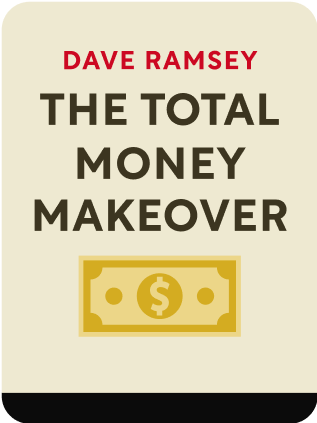

This article is an excerpt from the Shortform book guide to "The Total Money Makeover" by Dave Ramsey. Shortform has the world's best summaries and analyses of books you should be reading.
Like this article? Sign up for a free trial here .
What are some Dave Ramsey quotes? How are Dave Ramsey quotes representative of the principles in Total Money Makeover?
Dave Ramsey has built a career on financial and self-help advice. The ideas he shares in these Dave Ramsey quotes are reflected in Total Money Makeover.
Read on for three Dave Ramsey quotes and what they mean.
3 Dave Ramsey Quotes
“You must gain control over your money or the lack of it will forever control you.”
The first of the Dave Ramsey quotes is about taking action. Most people are in denial about the state of their finances. You might tell yourself that maybe things aren’t so bad—maybe you’re no worse off than the average person. The unfortunate truth is that most people have financial problems—that counts as average in today’s society, the way being overweight has become average.
There are two ways to break out of denial: you can wait for a crisis or you can proactively choose change.
1) Wait for a crisis: While you can’t argue with the scale when you’re trying to lose weight, you can fake financial health for a while (others will tell you you look great), but eventually your habits catch up with you. A wake-up call can be losing your job or business or suffering a major unexpected expense or health problem. Or, problems or debts may accumulate gradually until they reach a critical mass. Suddenly you can’t pay your debts or meet living expenses, and you can no longer deny that you’ve been skating on thin ice.
Sara and John got such a wake-up call. They felt financially secure with two incomes totaling $75,000 and “typical” debts of student loans, a car loan, and $5,000 owed on credit cards. So they built a new home, but shortly after they moved in, Sara was laid off. Upon losing half their income, they couldn’t deny their financial state and were forced to change their spending habits.
2) Choose to change: The alternative to waiting for a crisis is to look in the mirror, acknowledge your reality, and choose to change. Hopefully, this book will motivate you to want better-than-average financial health and to meet the makeover challenge.
“Parents who let teens run around with unearned adult freedoms are naive and stupid.”
The second of the Dave Ramsey quotes focuses on parenting decisions that teach financial behaviors, which in Total Money Makeover, is the issue of credit cards for teens. Parents often encourage teenagers to get a credit card, supposedly to learn financial responsibility. But getting a credit card teaches teens to buy what they can’t afford and incur debt, which is financially irresponsible and launches a lifetime of debt.
Young people, as potential life-long interest payers, are key targets for credit card companies, which portray getting a credit card as a rite of passage. It’s important for lenders to snag them early in life, because people tend to stick with the first bank that issues them a credit card. The marketing works: a majority of college seniors have credit card debt well before starting a career.
Credit card companies even work to build brand awareness among children by advertising through toys in hopes of influencing their choices later. For example, several Barbie dolls and accessories come with brand name toy credit cards.
Parents who encourage teens to get credit cards are endorsing something harmful. Instead, they should teach teens to say no to compulsive spending and debt.
“Broke is normal. Why be normal?”
The third of the Dave Ramsey quotes is about mindset. So debt is widely viewed as the way to do things. We’ve bought into it to such an extent that we get defensive if we hear anything negative about debt. But the borrower is the slave to the lender. Your income is your primary means of building wealth, and when it’s tied up in debt payments, banks gain and you lose. If you invested your income, you could build wealth and security. How much discretionary money would you have each month without debt payments?
One obstacle to gaining control of your finances is the widespread belief that debt is useful and normal—that everyone has it. In addition to this belief, there are a variety of related myths that encourage different types of borrowing.
You must reject these views of debt before you can get control of your finances. Society encourages us to take on debt starting as young adults and to carry debts throughout our lives. There are several reasons:
- Our culture promotes instant gratification. Although it’s human nature to want things right away, mature people delay short-term satisfaction for a bigger payoff later. But society encourages immaturity by urging you to get what you want now, before you can afford it, by borrowing.
- Financial institutions, stores, and other lenders promote borrowing to get what you want because they benefit when people owe them money.
- Debt has become so ingrained in our thinking that most people believe debt is normal and can’t imagine living without it. We don’t know how to get a car, buy a home, or go to college without debt. Most can’t imagine living without a credit card. (Americans have about $900 billion in credit card debt.)

———End of Preview———
Like what you just read? Read the rest of the world's best book summary and analysis of Dave Ramsey's "The Total Money Makeover" at Shortform .
Here's what you'll find in our full The Total Money Makeover summary :
- The 7 steps to achieving financial stability (you'll love #7)
- A fool-proof plan for becoming debt-free
- How myths about debt and money are crippling your financial health






